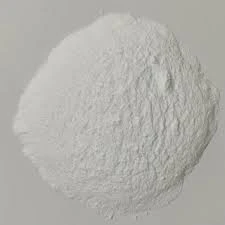Understanding PQQ The Total Benefits of Pyrroloquinoline Quinone
Pyrroloquinoline quinone, commonly known as PQQ, is a naturally occurring compound, a redox cofactor, that has gathered attention for its potential role in health and wellness. Initially discovered as a nutrient essential for certain bacteria, PQQ has since emerged in discussions around human health for its wide-ranging benefits. In this article, we will delve into PQQ, its total benefits, its physiological roles, and its relevance as a dietary supplement.
What is PQQ?
PQQ is a small quinone molecule that plays a crucial role in mitochondrial function. Mitochondria, often referred to as the powerhouses of cells, are responsible for energy production. PQQ acts as a cofactor for various enzymes involved in redox reactions, which help to manage cellular energy production and oxidative stress. Additionally, PQQ is known to promote the growth and function of mitochondria, thereby enhancing overall energy metabolism.
Total Health Benefits of PQQ
1. Mitochondrial Health One of the most compelling benefits of PQQ is its role in promoting mitochondrial biogenesis—the process of generating new mitochondria. This is particularly important as mitochondrial dysfunction has been linked to various age-related diseases, including neurodegenerative disorders, metabolic syndromes, and cardiovascular diseases. By boosting the number and efficiency of mitochondria, PQQ can contribute to improved energy levels and overall vitality.
2. Antioxidant Properties PQQ possesses powerful antioxidant capabilities, which help neutralize harmful free radicals in the body. This protective effect is essential for maintaining cellular integrity and preventing oxidative stress, which is associated with inflammation and chronic diseases. By reducing oxidative damage, PQQ may help delay the aging process and enhance longevity.
pqq total

3. Cognitive Function Research suggests that PQQ supports cognitive health by improving neuronal growth and protecting brain cells from damage. Some studies indicate that PQQ can facilitate better memory, learning, and overall cognitive performance, making it a potential supplement for those concerned about age-related cognitive decline.
4. Cardiovascular Health PQQ may also play a role in promoting heart health. Its antioxidant properties can improve endothelial function and reduce the progression of atherosclerosis, thereby lowering the risk of heart disease. Furthermore, PQQ has been linked to better regulation of cholesterol levels, further supporting cardiovascular well-being.
5. Metabolic Support Emerging research indicates that PQQ may aid in regulating metabolism, particularly glucose metabolism. This effect can improve insulin sensitivity and help manage blood sugar levels, which is particularly beneficial for those with or at risk of developing type 2 diabetes.
Sources and Supplementation
PQQ can be found in various dietary sources, including fermented soybeans, green peppers, kiwi fruit, and spinach. However, obtaining sufficient amounts through diet alone can be challenging. As a result, many individuals turn to PQQ supplements to enhance their intake. It is important, however, to choose high-quality supplements from reputable manufacturers, as the efficacy and bioavailability of PQQ can vary significantly.
Conclusion
In conclusion, PQQ presents a compelling case as a multifaceted compound with numerous health benefits, especially concerning mitochondrial function and overall cellular health. Its antioxidant properties, potential cognitive advantages, and support for cardiovascular and metabolic health make it a valuable addition to the health and wellness landscape. As research continues to unfold, PQQ stands out not just as a nutrient for a specific group of bacteria, but as a powerful supporter of human health in our modern world. Harnessing the total benefits of PQQ may very well enrich our pursuit of healthier, more energetic lives.

